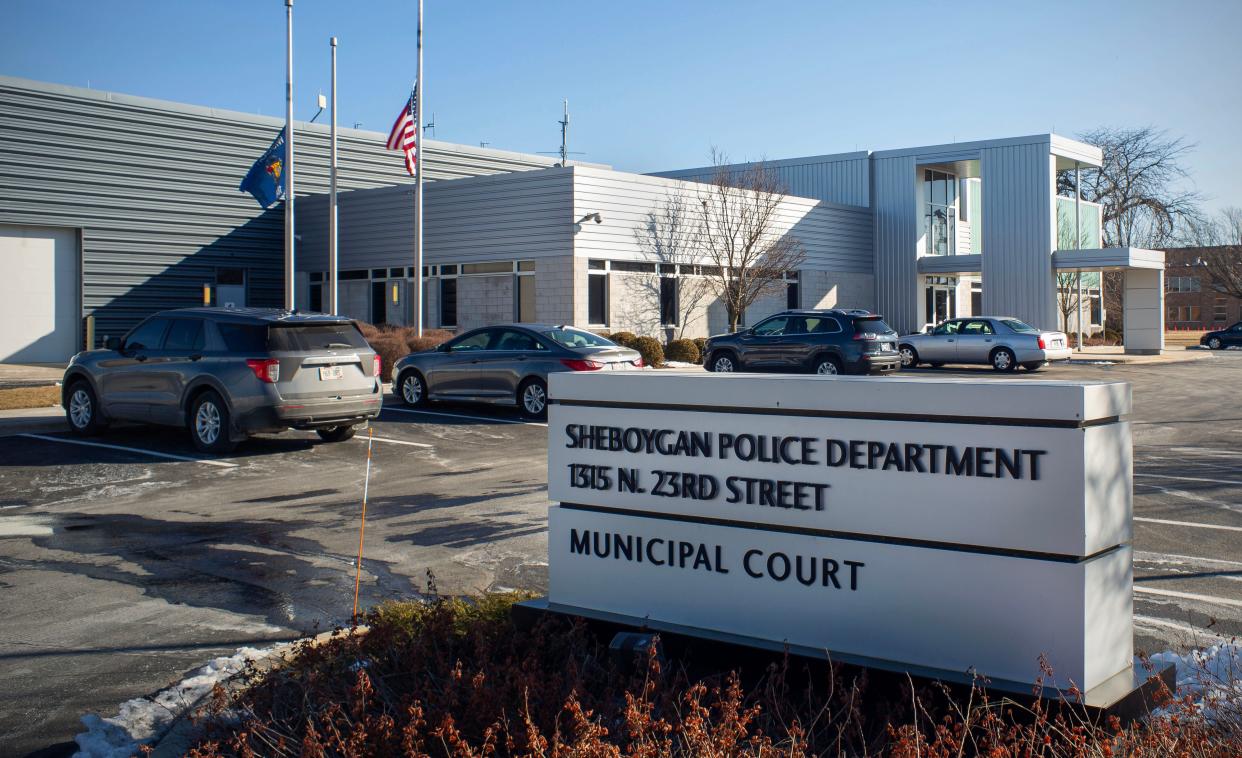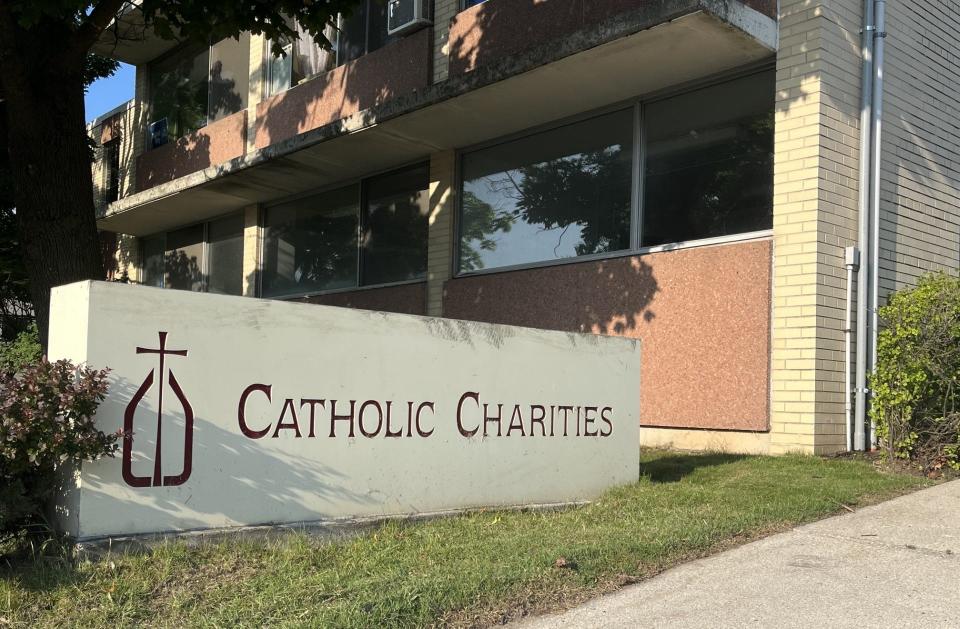How a new co-responder program with Elevate aims to better equip Sheboygan police response to mental health calls

SHEBOYGAN – Elevate, Inc. will expand two mental health services as it plans to move a residential program to a new site.
The mental health organization, in coordination with Sheboygan County Health and Human Services and city of Sheboygan, will launch a co-responder program with Sheboygan Police Department and a contract for mobile crisis services. Both programs will call for about 25 staff.
Mental health calls accounted for about 15% of Sheboygan PD’s total calls in recent years, according to available county data.
“If our staff can take some of that burden off of law enforcement and connect people with services, that's going to be a win for everybody,” Mary Simon, executive director of Elevate, said.
In the co-responder program, two mental health staff will ride with officers on crisis calls to help with de-escalation.Simon said staff will ride daily between 10 a.m. and 2 a.m., hours Sheboygan PD has received a high number of mental health calls.
Staff could also sit with dispatchers to identify calls for a mental health responder, not an officer.
Police may escalate situations involving mental health issues because “there’s a lot of fear and trauma” associated with “who they are and what their jobs are,” Simon said.
They may also lack necessary crisis knowledge and skills.
Sheboygan officers have participated in the National Alliance on Mental Illness's Crisis Intervention Team (CIT) training since 2015, according to the department’s webpage, but Simon said it’s a basic introduction to understanding mental health issues in their jobs.
“While they (officers) are trained to look through that lens because they go through the CIT training, it's a very small training, like 40 hours,” Simon said.
Required training topics include de-escalation strategies, trauma-informed care and specific considerations from groups, like veterans with post-traumatic stress disorder and older adults with dementia.
Mental health center staff issues: This year's funding kept the Open Door operating. But now staff are struggling to adjust.
Simon hopes to expand the CIT training with Sheboygan PD.
A co-responder approach can improve overall safety, lower future police contact and ensure individuals receive appropriate care. At-risk individuals could also avoid unnecessary arrests.
While co-responder programs are new for some municipalities, others have already seen success.
For example, Colorado counties, receiving about 26,000 calls in about a year, saw 98% of incidents end without arrests where there was co-responder intervention, according to state data. About 86% of calls also involved service referrals and behavioral health assessments.
Wisconsin cities, like Madison and Milwaukee, piloted co-responder programs, too.
Sheboygan's program is contracted for three years and will start as soon as staff are hired. It is supported by city and county American Rescue Plan Act funds.
Taking over mobile crisis response
Elevate will take over the county’s mobile crisis contract from Vista Care in 2024.
Vista Care received nearly 1,100 mobile crisis contacts in 2022 and about 400 so far this year, according to organization data.
Simon added the mobile crisis line will give Elevate another opportunity to reach people in crisis.
“A lot of times when a person or family is in crisis, they don't know what they need,” Simon said. “They just know that they want the situation to be over.”
South Pier reopens: South Pier is open again. Here's the latest updates on the 3-year, $12 million project.
Residential program plans for new home

Calm Harbor, Elevate’s mental health crisis stabilization program, could move from 1202 N. 31st St. to Sheboygan’s Catholic Charities building before the end of the year.
Elevate has a $1.1 million capital campaign for remodeling, furnishing and building an addition to the new space for its supportive independent living program.
Calm Harbor's current space is too small and has some safety issues, Simon told the Sheboygan Press last year. The new site will have natural sunlight and large open areas, like a communal living area and outdoor recreational space.
The 24/7 program offers temporary monitoring and support for individuals experiencing a mental health crisis but who don’t need to be in a hospital.
“They may be having suicidal thoughts. There may be something that happened with their medication that caused their symptoms to reappear," Simon said. "They may have had contact with law enforcement, and there were no criminal issues, but they wanted to make sure that this person was supported."
Calm Harbor can serve 10 clients at a time. They typically stay three to seven days but could stay longer as a result of extenuating circumstances.
Elevate contracts with the county, so there is no charge for Calm Harbor services.
How to access crisis resources
Call 911 if you’re experiencing an emergency. Here are several mental health resources and hospitals to reach if not experiencing an immediate emergency.
Sheboygan mobile crisis line: Call the 24/7 local crisis line at 920-459-3151 or text MHA to 741741.
988 Suicide & Crisis Lifeline: Call or text 988 or 800-273-8255.
LGBT National Help Center Hotline: Call 888-843-4564.
Aurora Medical Center – Sheboygan County: Go to 3400 Union Ave. in Sheboygan or call 920-802-2100.
HSHS St. Nicholas Hospital: Go to 3100 Superior Ave. in Sheboygan or call 920-459-8300.
How to get involved with Elevate
Elevate is hiring and fundraising for its capital campaign.
More information can be found at https://elevateyou.org/ on the “Employment” and “Take Action” tabs, respectively.
To reach the organization, call 262-677-2216 or email info@elevateyou.org.
Contact Alex Garner at 224-374-2332 or agarner@gannett.com. Follow her on Twitter at @alexx_garner.
This article originally appeared on Sheboygan Press: Sheboygan police partners with Elevate for mental health calls

